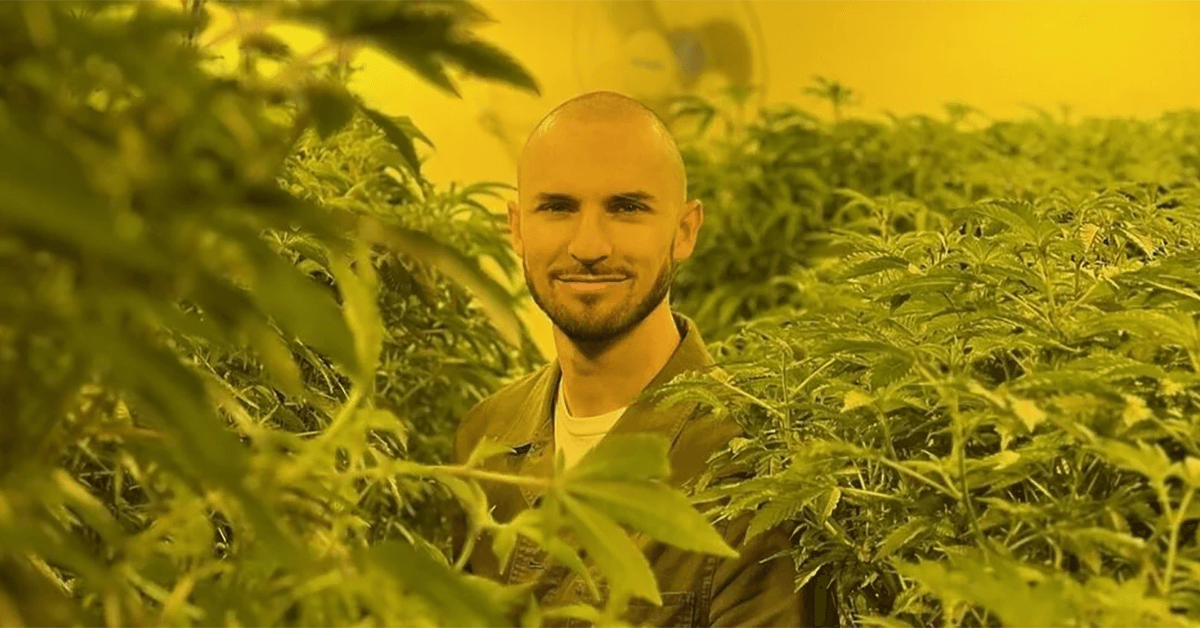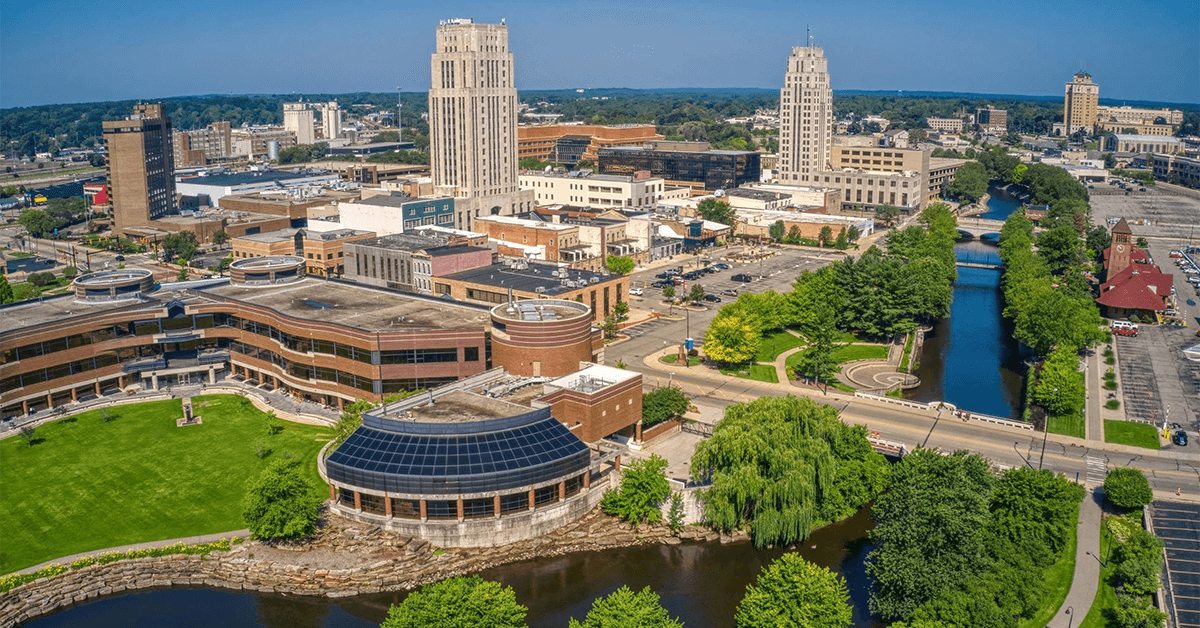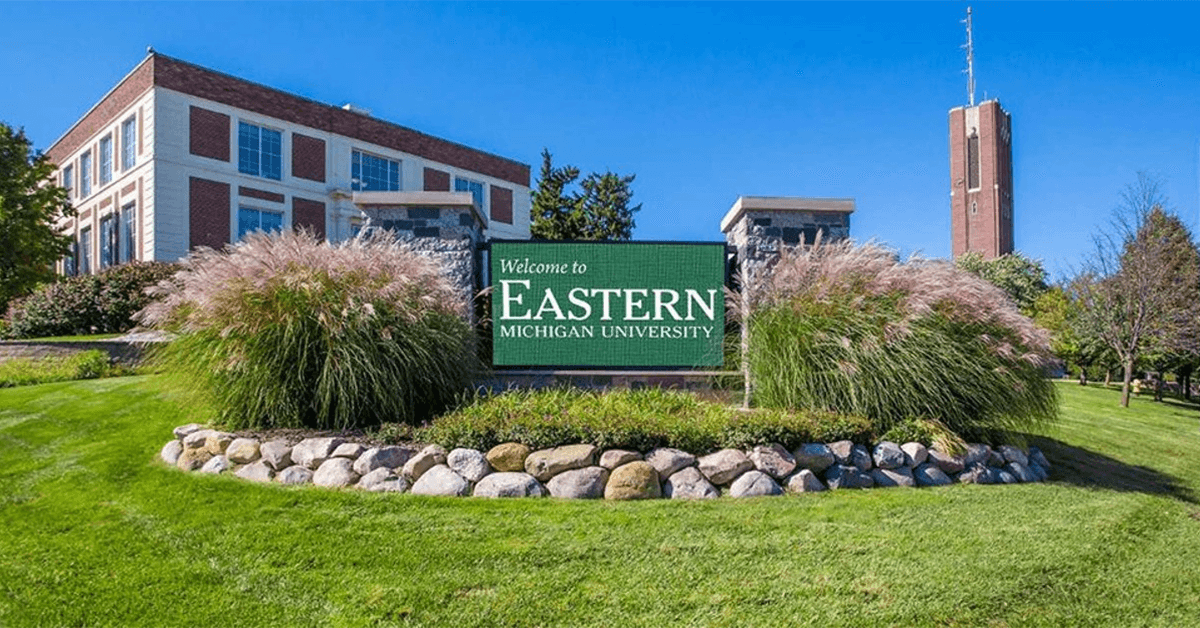Al Harrington's Viola Faces Setback in Detroit Amid Insurance Dispute

In a significant development illustrating the challenges within the cannabis industry, Al Harrington, a former NBA star and the CEO of Viola, has declared an indefinite halt to operations at the brand's only dispensary in Detroit. This pause in operations comes roughly four years after the medical cannabis retail outlet first opened at 4473 W. Jefferson Ave., a strategic location chosen by Harrington for his national cannabis initiative.
The catalysts for this decision are multifaceted, reflecting the broader struggles faced by the cannabis sector. Harrington highlighted that dwindling profit margins—caused by a sharp decline in cannabis product prices—and reduced medical cannabis sales have significantly impacted the business's operational sustainability.
This challenge is intensified for businesses like Viola that are yet to secure licenses for recreational cannabis sales, which amplifies their operational difficulties.
A critical issue for Viola has been its ongoing dispute with Obsidian Specialty Insurance Co., its insurance provider. Harrington revealed that Viola's insurance claims, including those for damages caused by an ice storm in February which resulted in extensive loss of cannabis plants, have been consistently denied.
Harrington expressed his frustration with the insurance provider, stating, "When the people that are supposed to be there to support us — that we actually pay to do a job for us and to provide a service — they don't do it, it's tough."
The denial of insurance claims by Obsidian Specialty Insurance Co. follows a series of mishaps for Viola, including damage from a snowstorm leak and a theft in October, leading to three insurance claims totaling $8.9 million being refused.
In the interview, Harrington discussed the various challenges Viola has faced, not just in Michigan but across other states as well, including electrical outages and infestations. These operational difficulties have prompted Viola to consider a strategic shift towards an "asset-light model." This approach involves collaborating with other growers to cultivate Viola's strains according to its specifications, aiming to lessen the operational load on the company.
The closure of the Detroit dispensary signifies a notable obstacle for Viola's aspirations in Michigan. Despite efforts to obtain recreational cannabis licenses, the company has faced rejection, narrowly missing out due to tight margins and encountering technical problems with their application submissions.
This failure to shift towards recreational sales has hindered growth and revenue, rendering the dispensary unable to reach its full potential.
Despite these setbacks, Harrington remains hopeful about Viola's prospects in Detroit and the wider cannabis market. He is keen on pursuing new ventures under the asset-light model, potentially collaborating with other cultivators to maintain Viola's presence in Michigan. Harrington's dedication to Detroit and to cannabis advocacy is steadfast, with aspirations of resolving the insurance conflict to continue investing in Viola's success within the cannabis sector.
Al Harrington's experience with Viola, from its inception to its current challenges, underscores the complexities and fluctuations of the cannabis industry, providing a compelling case study in the ongoing evolution of cannabis business regulations and culture.
Legal Battle Over Cannabis Market Heats Up in Menominee, Michigan

In the small Michigan town of Menominee, with a population of 8,300, situated on the picturesque shores of Lake Michigan's Green Bay and neighboring the state of Wisconsin, a complex legal battle is unfolding. This fight is over the control of the town's lucrative cannabis market, a battle characterized by allegations of unethical conduct and potential illegal activities among competing cannabis businesses. This conflict highlights the intense competition and legal intricacies faced by the cannabis industry in regions where the market is both lucrative and tightly regulated.
Menominee finds itself at the center of a dispute involving eight cannabis companies, entangled in legal proceedings that implicate the town's officials in alleged violations of the Open Meetings Act and covert operations to skew the local cannabis market in favor of certain businesses. This dispute underscores the town's strategic importance as a cannabis market, drawing significant attention from out-of-state customers, particularly from Wisconsin, where cannabis remains illegal.
At the heart of this controversy are accusations against corporate-backed "shadow" groups, which are said to be orchestrating efforts to limit the expansion of new cannabis shops through sham citizen committees, alongside allegations of political bribery and unethical maneuvers designed to manipulate market dynamics.
A notable moment in this ongoing legal saga occurred during a motion hearing at Menominee's 41st Circuit Court on March 20th, where a staggering 16 attorneys represented the various parties involved, extending what would typically be a brief proceeding into a marathon session lasting over four hours.
Joslin E. Monahan, an attorney from the Grand Rapids-based Miller Johnson law firm, represents Higher Love, a cannabis chain with a store in Menominee. Monahan addressed accusations that her client, among others, had engaged in bribing city officials for favorable market positio ning, a claim for which she asserts there is no evidence. These allegations, Monahan contends, not only lack substantiation but also tarnish the reputations of those implicated, potentially influencing critical decisions within the community.
The roots of the dispute trace back to 2021, when Menominee, after a competitive application process, issued cannabis retailer licenses to Rize and the Fire Station. This decision sparked lawsuits from multiple businesses that were not awarded licenses, alleging flaws in the selection process. Although these initial lawsuits were dismissed, the threat of appeals prompted a settlement agreement in 2023, effectively lifting the cap on the number of cannabis licenses in Menominee and granting priority to the previously contesting companies for new licenses.
Rize and Fire Station subsequently filed lawsuits in state and federal court, challenging the settlement's legitimacy and arguing that the removal of license caps contravenes state laws and undermines their initial business investments predicated on a market with limited competition.
Amid these legal battles, allegations of underhanded tactics have emerged, including the operation of "shadow" groups aiming to curtail the expansion of the cannabis market. It is reported that Rize and Higher Love contributed a combined $200,000 to a ballot initiative campaign, ostensibly led by citizens, to limit the number of cannabis stores in Menominee. Opposing attorneys have criticized this move as a deceptive strategy to influence public opinion and maintain market dominance.
As the legal proceedings unfold, Menominee Circuit Judge Mary Barglind has begun to address some of the disputes, dismissing resolved claims and allowing for the introduction of new allegations. With five cannabis shops currently operational in Menominee and several more planning to open, the outcome of this legal battle will significantly impact the town's cannabis market landscape, setting precedents for how business disputes and regulatory challenges are navigated in the burgeoning cannabis industry.
Best in Grass: Elevating Michigan's Cannabis Scene Through Statewide Competition

In an exciting development for Michigan's thriving recreational cannabis sector, the state is set to host a novel competition aimed at highlighting the best cannabis products available. The competition, orchestrated by Best in Grass, a company founded by two former High Times events employees, is scheduled to kick off its inaugural judging contest on April 6th.
This unique event will showcase over 200 cannabis products from 60 different brands, spanning categories such as flower, concentrates, vapes, and edibles. The culmination of this competition will see the winners announced at a special event at the Royal Oak Music Theater on June 18th.
Local cannabis enterprises are invited to participate by contributing their products to Best in Grass. These products will be organized into categories and offered for sale at 25 selected retailers across Michigan. Purchasers of these kits will have the opportunity to judge the products, incentivized by a $20 discount at the dispensary where they acquired the kit.
A diverse array of dispensaries is participating in this initiative, including Leaf and Bud, Puff, The Grove, Breeze, Green Lab Provisions, Remedii Natural Health, The Bloomery, North Coast Provisions, Rize, and Da Cut. The pricing of the kits will range from $75 to $280, varying by product category.
Mark Kazinec, President and COO of Best in Grass and former Vice President of Events and Competitions at High Times, expressed his enthusiasm for the Michigan cannabis community. Kazinec's decision to launch the inaugural event in Michigan was influenced by the state's vibrant cannabis culture and its significant market size within the U.S. He aims to engage and connect with Michigan's dedicated cannabis community through Best in Grass.
Michigan's cannabis industry has experienced rapid growth, emerging as a leader in the national market. In 2023, the state's consumers spent $3.06 billion on medical and recreational cannabis, reflecting a robust per capita expenditure. Sales figures from early 2024 suggest a continued upward trend, with the state on course to surpass its previous year's total, potentially reaching over $3.5 billion in sales. This growth trajectory places Michigan ahead of other established markets, trailing only California in terms of sales volume, despite Michigan's significantly smaller population.
Following the Michigan event, Best in Grass plans to expand its competitions to other states, including Ohio, Illinois, Oklahoma, Massachusetts, New Mexico, Rhode Island, and Missouri, aiming to replicate the success and community engagement seen in Michigan.
Battle Creek Cannabis Businesses Receive State Grants for Social Equity

Four cannabis businesses in the Battle Creek area are set to receive grants exceeding $16,000 each through Michigan's Cannabis Regulatory Agency's statewide social equity program. The initiative aims to foster a more sustainable and equitable cannabis industry by supporting businesses in communities that have historically faced disproportionate challenges due to cannabis prohibition and enforcement.
State Senator Sarah Anthony highlighted the importance of this initiative, stating, "Since the legalization of cannabis in 2018, it's become evident that our state must take further steps to guide this burgeoning industry towards a more sustainable and equitable future." She added, "This opportunity allows for the reinvestment in local talent and the stimulation of economies in both urban and rural areas, such as Lansing, which have been adversely affected by the industry's emergence. Congratulations to the 62 awardees across the state and the seven grantees from the Greater Lansing region."
The Social Equity Grant Program, established following the 2018 legalization of adult-use cannabis by voter initiative, allocates a total of $1 million to 62 qualifying social equity licensees, each receiving $16,129. The program's creation underscores the state's commitment to remedying the historical inequities and fostering participation within the cannabis industry by individuals from impacted communities.
In Battle Creek, KDs Venture, NMR1, Simpots Enterprises, and Symponia Farms are among the recipients of this funding. This marks the first occasion that funds have been expressly designated to support social equity licensees.
Brian Hanna, Executive Director of the Cannabis Regulatory Agency, expressed his enthusiasm about the grants, "I'm thrilled to see our licensees utilize these funds to make positive impacts on their employees, communities, and businesses. Our social equity licensees truly deserve this opportunity."
To qualify for the Social Equity Grant Program (SEGP), recipients must hold a valid adult-use license issued by the CRA, be majority-owned by individuals eligible for the Social Equity Program, and be certified participants in the CRA's Social Equity All-Star Program.
The allocated SEGP funds are designated for use in specific areas, including employee education, business needs, and community investment. This includes funding for employees to pursue relevant education at accredited institutions, compliance with licensing and regulatory requirements, and support or donations to organizations, nonprofits, or charities that contribute positively to the community where the business operates.
Pioneering Cannabis Education at Eastern Michigan University This Fall

Eastern Michigan University (EMU) is set to introduce two pioneering courses in its fall semester curriculum, aimed at providing comprehensive insight into the burgeoning cannabis industry. The initiative reflects the university's commitment to offering educational programs that align with evolving industry trends and societal discussions.
The first course, titled "URP 479: Canna-planning: Marijuana Legalization and Land-Use in Michigan," delves into a variety of topics crucial to understanding the cannabis sector. These include the history of cannabis prohibition, the impact of the war on drugs, nuances of rural and urban cultivation practices, and the intricate dynamics of legal sales regulation and taxation. Dr. RJ Koscielniak, an assistant professor in the Department of Geography and Geology at EMU, emphasized the uniqueness of this offering, stating, "There isn't another course like this in the United States. No other university is teaching this material and asking these kinds of questions with their students." This course aims to equip students with a deep understanding of local and state cannabis legislation, preparing them to navigate and contribute to the industry effectively.
In the fiscal year 2023, Michigan's licensed cannabis dispensaries reported unprecedented sales, totaling $3.06 billion—a 25% increase from the previous year. This surge in sales, boosted by a 10% excise tax on recreational cannabis, is expected to contribute over $274 million to local governments, educational institutions, and infrastructure projects, showcasing the significant economic impact of the cannabis industry in the state.
Dr. Koscielniak also noted the transformative effects of cannabis legalization on various Michigan communities, acknowledging both positive and negative outcomes. The course aims to foster a balanced discussion on ensuring that the benefits of legalization are equitably distributed.
The second course on offer, focusing on the chemistry of cannabis, aims to unravel the scientific processes underlying the production of cannabis products. Led by Dr. Harriet Lindsay, professor and interim department head of chemistry, this course will cover the extraction of plant sources to isolate terpenes, cannabinoids (including CBD), and Tetrahydrocannabinol (THC). Dr. Lindsay highlighted the growing importance of understanding the science behind cannabis, especially in light of the expanding legalization across the United States. The course will address how cannabis products are manufactured, tested for regulatory compliance, and their interaction with consumers.
These innovative courses at EMU underscore the institution's proactive approach to integrating relevant, cutting-edge topics into its academic offerings, catering to the interests and needs of students while addressing the broader implications of the cannabis industry's expansion.
Industry Leaders to Converge at the 2024 Cannabis Summit in Michigan

The upcoming 2024 Cannabis Summit, scheduled for November 12th, stands as a pivotal gathering for the cannabis industry's leading figures, policymakers, innovators, and entrepreneurs. Hosted at OVD Insurance in Wyoming, Michigan, this event is poised to delve into critical industry topics such as debt restructuring, the challenges of accounts receivable (A/R), competition from hemp products, the implications of IRS Code 280E, and more. With an agenda packed from 1:00 pm to 2:45 pm EST, attendees are invited to immerse themselves in discussions that aim to shape the future of the cannabis sector.
Event Overview:
Date and Location:
- Date: November 12, 2024
- Time: 1:00 pm - 2:45 pm EST
- Location: OVD Insurance, 2780 44th St SW, Wyoming, MI 49519
Key Topics for Discussion:
- Debt restructuring strategies in the cannabis industry
- Addressing current accounts receivable (A/R) challenges
- Navigating the competitive landscape with hemp products
- Understanding and mitigating the impact of IRS Code 280E on cannabis businesses
Networking Opportunities:
The summit will provide an invaluable platform for networking, allowing participants to connect with like-minded professionals. Whether you're an industry veteran or just beginning your journey in the cannabis world, the summit offers a unique opportunity to expand your professional network and foster collaborative relationships.
Who Should Attend:
- Industry Leaders: For those at the forefront of the cannabis industry, the summit offers insights into navigating the market's challenges and opportunities.
- Policymakers: With the regulatory landscape continually evolving, policymakers can gain a deeper understanding of the industry's needs and the implications of current regulations.
- Innovators: Individuals driving innovation within the cannabis sector will find the summit a source of inspiration and collaboration.
- Entrepreneurs: Aspiring and established entrepreneurs can learn strategies for success and connect with potential partners and investors.
Participation Details:
Admission to the Cannabis Summit 2024 is complimentary, ensuring accessible participation for all interested attendees. The event will also feature a virtual attendance option, catering to those unable to travel to the physical location. Details regarding the virtual participation will be announced, ensuring a broad and inclusive reach.
This summit promises to be more than just an event; it's a convergence of minds eager to drive forward the cannabis industry's growth and innovation. Don't miss out on the chance to be part of this transformative gathering. RSVP now to secure your spot in the cannabis revolution.


 Helpful Links
Helpful Links